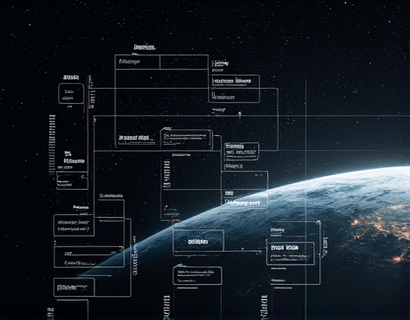Maximizing Civic Engagement: Leveraging Real-Time Data for Transparent Governance
In the digital age, the intersection of technology and governance has opened new avenues for civic engagement. Real-time data access stands as a pivotal tool in transforming how governments operate and how citizens participate in the democratic process. This article delves into the transformative impact of real-time data on governance, highlighting how open data initiatives drive informed citizen participation and enhance accountability in democratic processes. By providing transparent government information, these initiatives empower citizens to engage more deeply, fostering a collaborative and accountable government.
The Importance of Transparency in Governance
Transparency is the cornerstone of trust in any democratic system. When government operations are open and accessible, citizens can better understand and scrutinize the actions of their elected officials. This openness not only builds trust but also encourages active participation from the populace. Real-time data plays a crucial role in achieving this transparency by ensuring that information is up-to-date and readily available to the public. This immediacy allows citizens to stay informed about policy changes, budget allocations, and other critical governance activities as they happen.
Real-Time Data: A Game Changer for Civic Engagement
Real-time data refers to information that is collected, processed, and made available to the public instantly or near-instantly. This contrasts with traditional data release methods, which often involve delays and can leave citizens in the dark about current events. The advent of real-time data has revolutionized civic engagement by providing citizens with timely insights into government activities. For instance, real-time updates on public spending can help citizens monitor budget executions and identify potential misallocations or inefficiencies.
The impact of real-time data on civic engagement is profound. It enables citizens to make informed decisions, hold officials accountable, and participate more effectively in public discourse. By having access to current data, citizens can engage in meaningful discussions and debates, contributing to a more informed and active citizenry. This, in turn, strengthens the democratic process by ensuring that government actions align with the needs and expectations of the people.
Open Data Initiatives: Driving Informed Participation
Open data initiatives are at the heart of leveraging real-time data for civic engagement. These initiatives involve the proactive release of government data in accessible and usable formats, allowing citizens, developers, and organizations to analyze and utilize the information for various purposes. By making data open, governments demonstrate their commitment to transparency and accountability, fostering an environment where informed participation thrives.
One of the primary benefits of open data is its ability to democratize information. Traditionally, government data was often locked away in proprietary systems, accessible only to a select few. Open data breaks down these barriers, making information freely available to everyone. This democratization empowers citizens to engage in data-driven advocacy, research, and innovation. For example, developers can create applications that visualize real-time data, helping citizens understand complex issues such as traffic patterns, air quality, and public health metrics.
Case Studies: Successful Open Data Initiatives
Several cities and countries have successfully implemented open data initiatives, showcasing the positive impact on civic engagement. In New York City, the Open Data Portal provides a comprehensive platform for accessing a wide range of government data, from budget details to environmental monitoring. This portal has been instrumental in fostering a culture of transparency and has led to numerous civic projects that leverage this data to improve urban living conditions.
Another notable example is the UK's Data.gov.uk, which has been a pioneer in open data governance. By making government data openly available, the UK has seen significant advancements in civic tech, with numerous applications and services developed to enhance public services and engagement. These initiatives not only improve government efficiency but also enhance the quality of life for citizens by providing them with tools to actively participate in governance.
Enhancing Accountability Through Real-Time Data
Real-time data not only informs but also holds government officials accountable. When citizens have immediate access to information about government actions and decisions, it becomes easier to track performance and identify areas for improvement. This accountability is crucial for maintaining public trust and ensuring that government operations are efficient and effective.
For instance, real-time data on public service delivery can help citizens monitor the performance of local services such as waste management, public transportation, and healthcare. By tracking key metrics in real time, citizens can provide feedback and suggestions for improvement, creating a feedback loop that drives continuous enhancement of public services. This level of transparency and responsiveness is essential for building a government that listens to and serves its citizens.
Challenges and Considerations in Implementing Real-Time Data
While the benefits of real-time data and open data initiatives are clear, their implementation is not without challenges. One of the primary concerns is data quality and accuracy. Real-time data must be reliable and accurate to be useful. Governments need to invest in robust data collection and verification processes to ensure that the information provided is trustworthy. Additionally, data privacy and security are critical considerations. Sensitive information must be protected to prevent misuse and ensure citizen trust in the system.
Another challenge is the digital divide, where not all citizens have equal access to the internet and digital tools. To maximize the impact of real-time data, governments must strive to bridge this divide by improving digital infrastructure and providing access to technology for underserved communities. Education and training programs can also help citizens understand how to use and interpret real-time data, further enhancing civic engagement.
Fostering a Collaborative Governance Model
The integration of real-time data into governance processes can lead to a more collaborative and participatory model of government. By engaging citizens in the data-driven decision-making process, governments can tap into a wealth of diverse perspectives and insights. This collaboration not only enriches the policy-making process but also builds a sense of ownership and responsibility among citizens.
Platforms that facilitate real-time data access can serve as hubs for civic dialogue and innovation. Citizens can share their observations, propose solutions, and collaborate with other stakeholders to address community issues. This collaborative approach fosters a culture of mutual respect and cooperation, essential for a healthy democracy. Moreover, by involving citizens in the governance process, governments can identify and address issues more effectively, leading to better outcomes for all.
Conclusion: Embracing the Future of Governance
The potential of real-time data to transform governance and civic engagement is immense. By embracing open data initiatives, governments can create a more transparent, accountable, and participatory democratic system. Citizens, empowered with timely and accurate information, can play a more active role in shaping their communities and holding officials accountable. As technology continues to evolve, the opportunities for enhancing civic engagement through real-time data will only grow.
Joining the movement towards a more transparent and participatory governance model is not just a choice but a necessity for the future of democracy. By leveraging real-time data, we can build a government that truly serves the people, fostering a society where informed participation and accountability are the norms. Together, we can create a brighter, more engaged, and more resilient democratic future.










































